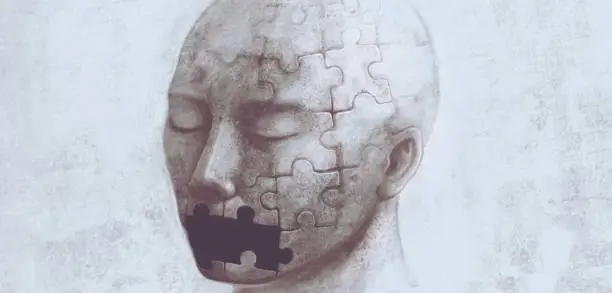
Language as Identity: How Communication Shapes Communities
- 0
Table of Contents
ToggleIntroduction: How Language Shapes Our Identity
Language is much more than just a form of communication — it is a key signifier of cultural identity, social belonging and graphic imagination. Faith in the written and spoken word can be challenged by the variables in language — from the words we choose to the dialect we communicate to those around us, language reveals aspects of our identity, our beliefs, and our community.
Language as Identity reveals how accents, speech patterns and even word choice so fundamentally frame both personal identity and, in conjunction with each other, collective identity across communities around the world.
Cultural Heritage and Language

Language is the every day memory of your culture. It protects a group historic background through the preservation of strong practices, traditions, and beliefs. Traditional knowledge is encoded in some indigenous languages over centuries, not recorded in books, etc. Communities lose the vital root connectivity when these languages disappear.
To understand Language as Identity is to understand language as vital to cultural uniqueness. As UNESCO reports, there is a death of a language every two weeks, so it is essential to preserve these languages if we want to keep the beauty of civilization intact.
Language can provide a sense of belonging and security, akin to a physical home among like-minded people.
A common language creates a social link and develops social links because it tends to unify the people of a given community. Speaking a shared language provides the ability to express freely, trust freely, and of course, this can be in a neighborhood or cities or countries.
Spoken and written language is used to establish boundaries and enforce group laws. A common language grants us a heightened sense of belonging. Such a sense of belonging is the basis of Language as Identity, where members of a community can collaborate and flourish.
The Impact of Language on Multilingualism and Individual Identity
Many people, especially in the context of globalization, learn multiple languages as they grow up. Every language has a connection with a distinct aspect of one’s identity. An individual may speak one language at home and go to a different school and end up with a sort of dual identity. In addition, this diversity of language style boosts mental power and increases cultural understanding.
An Exploration of Language as Identity in this context emphasizes the way multilingualism changes who you are, changes your personality, or enables you to stew pots of cultures, bringing in new perspectives, and allows you to feel a more global identity.
Language as a Political Tool

It is often said in politics that the pen is mightier than the sword; language often is central to these power dynamics. Nation states, even where they believe they are diverse, use language policies to create a sense of national unity or silence dissenting voices from minority communities. Like language laws making a language compulsory one can marginalise the linguistic minorities.
The use of 11 official languages in post-apartheid South Africa shows how language can be devel-oped actively for inclusivity. The linguistic identity also plays an important role in politics because when communities struggle and keep their languages alive, they are making a deliberate choice to resist, to say that we exist, and to claim their identity.
Dialect: A regional form of language
Dialects can reveal huge regional and social divides even in one language. Accents, local words, and way of talking all tell you where someone is from — and usually incite pride in their local identity. Southern American english or the Liverpool accent in the UK, for example, are not just sound, they’re cultural and traditional.
It is evident that language as identity is exemplified through how individuals safeguard and honour their respective dialects. As a result, dialects foster local solidarity and grant speakers a unique identity.
Socio-economic disparity and Language bias
Language can also become a barrier for discrimination. Those who have a non-dominant language or heavy accent may be socially excluded or unable to find work; This kind of phenomenon is called linguistic prejudice which violates equality [9].
Research indicates that standard accent speakers are often presumed to be more capable or intelligent than a non-standard accent speaker, irrespective of whether that was actually the case. It helps ascertain their biases and helps in building a fair and inclusive field. Realization of Language as Identity means acceptance of all language practices without discrimination in the society.
The Second Side of the Digital Coin: Communication and Identity
Digital platforms are redefining how individuals use language for identity. (The Fishers) Emojis, memes and internet slang have widely adopted. People take it online, switching between formal and informal language based on the platform or audience.
Such choices are embedded in age, social group or cultural orientation. Indeed, Language as Identity goes beyond physical spaces, into the virtual, where individuals come together to produce, remix and exchange linguistic variants that show who they are and what they represent.
Preserving Vanishing Languages
Communities are stepping up to breathe new life into dying languages Activities like teaching indigenous languages at schools or compiling digital dictionaries are efforts to reclaim identities and hence work toward language preservation.
In New Zealand the Maori language revival is a case where language reclamation has served to bolster community pride. The movements are examples of how Language as Identity are so apparent; where language is not just a tool for communications, but a tool for healing cultural wounds and sparking a form of intergenerational solidarity.
Language and Global Identity

There are other languages, but in our global world, English has become the language of globalisation, international business, and education. Though it opens doors for opportunities, it also poses a threat to the local languages and identity. It is essential to balance internationalism with local memory. This is where bilingual and intercultural education systems can fill these gaps.
So, Changing Language as Identity → to Language as Identity → will only ever be a partial solution, one that frees up new spaces for global understanding but at the same time, risks diluting a population of linguistic interests, the very bedrock that human connection ultimately relies on to remain grounded.
Conclusion: Language Is the Essence of What Makes Us Human
Language is not merely a tool–but perhaps a far deeper expression of our identities, our sense of belonging, and how we relate to the world. It transports our tales, our feelings, and our common histories. Language — spoken, written or online — is the vehicle through which we build relationships, communities and identities.
When people acknowledge language as part of their identity, it frees their self and their society to ease their differences, fight injustice and maintain a culture. We create more inclusive, empathetic and dynamic human communities in the process.